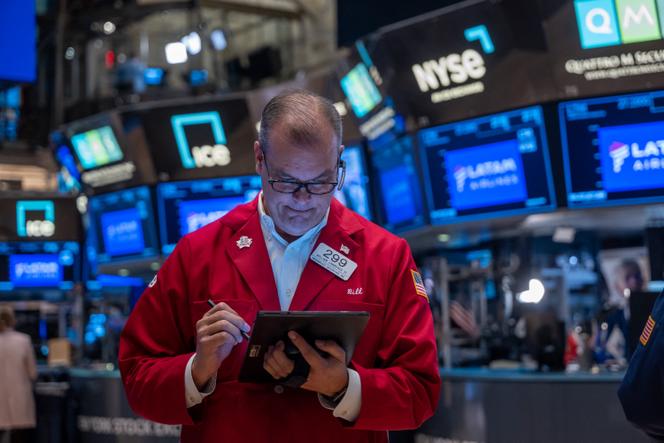


Donald Trump's victory on Tuesday, November 6, and the prospect of a new administration implementing a policies combining tax cuts and deregulation measures have already benefited US equities, while the prospect of higher tariffs and a widening budget deficit is fuelling the rise in yields on Treasury bonds and the dollar.
On the equity side, the US S&P 500 index was headed for a rise of around 1% at the open on Wednesday and the Russell 2000, which groups US small and mid-caps, for a jump of over 2%, according to futures trading. Small caps are the most likely to benefit from the corporate tax cuts promised by the Republican candidate.
The Tokyo Stock Exchange, boosted by the yen's fall against the greenback, which benefits Japanese exporters, ended the day up 2.5%. And the European markets, too, started the day in the green: In Paris, the CAC 40 index gained 1.75% at the start of the session, and the London and Frankfurt bourses gained 0.9% and 0.8% respectively.
"European markets are being caught up in US stock market euphoria," summed up Mabrouk Chetouane, head of strategy for international markets at Natixis IM, an asset management company. It was a world apart from the reactions to Trump's first election in 2016, which went against all the polls as well as the positions taken by investors before the election, and which sent stocks plunging in Asia and Europe, before Wall Street opened higher, quickly bringing back calm.
This time, the speed of the outcome and the apparent scale of Trump's victory, complemented by the prospect of a Republican majority in the Senate, immediately benefited all stock markets. Starting, logically enough, with the US markets.
"Trump will do everything in his power to favor the US, at the expense of others - that's his identity," said Samy Chaar, chief economist at Lombard Odier: "US equities are therefore very well placed. For European equities, it will depend on the majority in the House of Representatives, which could constrain this Trump identity."
The other striking consequence of the elections on the markets is the surge in US government bond yields, with the yield on 10-year Treasury bonds rising to 4.4%, the highest since May.
"Tax cuts, customs tariffs, immigration policy, which will certainly have an impact on labor costs, will encourage price rises, which could push 10-year rates up to 4.5%," explained Nicolas Bickel, head of private banking investments at Edmond de Rothschild.
You have 34.78% of this article left to read. The rest is for subscribers only.
